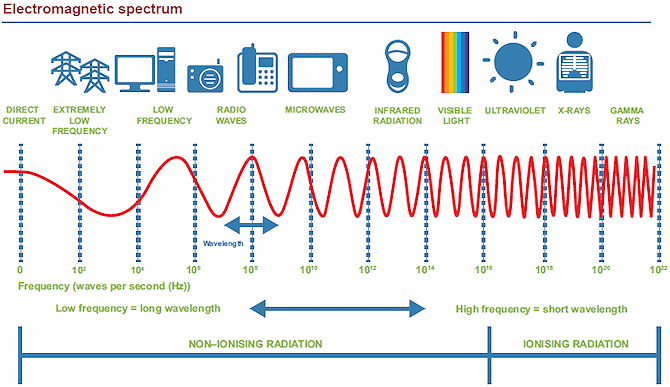Since cell phones were first introduced, there’s been a host of safety concerns around them. As much as smartphones have helped and changed our lives for the better, they’ve also opened up worries around radiation, germs, and depression; but how concerned should you actually be?
Radiation
Phones emit minor amounts of radiation, which, when people generally hear, their eyebrows start lifting – but radiation isn’t necessarily a negative – it all depends on what type it is. To simplify things, one can break radiation down into two categories: Ionising (bad) and non-ionising (harmless). Ionising radiation, like UV light, X-Rays, and microwaves can potentially damage atoms sufficiently to cause cancer, but that’s not the same type of radiation emitted by a mobile device when a phone call is active, for example. These fall within the spectrum of radio waves. The diagram below shows different kinds of radiation:

Germs
Of course, germs are a legitimate concern to take into account when analysing the cleanliness of most smartphones devices. Research has varied on just how many germs are crawling on the average cell phone, but a recent study found more than 17,000 bacterial gene copies on the phones of high school students. Scientists at the University of Arizona have found that cell phones carry 10 times more bacteria than most toilet seats. Of course, this is one study, and depending on your cleanliness when using a smartphone and what it comes into contact with will determine its state. Therefore, cleaning your phone with anti-septic wipes and keeping it in a removable plastic and washable cover is likely a good idea.
Depression
The link between smartphone-use and depression is still a relatively new field of research, but many studies do find a correlation between how we use social media and an increase in anxiety, depression, and suicide – and given that most social media-use comes through mobile devices, there’s a connection there. In a 2017 study, San Diego State University psychology professor Jean Twenge and her colleagues found a troubling correlation across a couple of these surveys: Adolescents who spend more time on social media and electronics seemed to be at a higher risk for depressive symptoms and suicide-related outcomes. These effects were largely driven by female adolescents. There are a few caveats about this research that are worth mentioning right away. One: The data doesn’t imply causality or the direction of the association. Are teens who are more depressed spending more time on their phones? Or are teens becoming depressed because they spend more time on their phones? Many of these mental health researches are ongoing.




